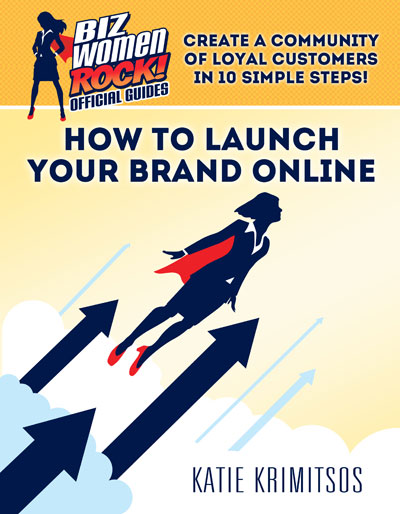
7 Insider Secrets From Female Entrepreneurs
By Dayna Evans
On a very high-up floor of 1 World Trade Center on Thursday, a couple-hundred businesswomen came together at the Women’s Entrepreneur Festival to share their best-kept work secrets. Between panels and workshops, a lively keynote and cocktail hour, and a lavish lunch of wraps! and orzo! and ice cream!, the group discussed the sunny realities of what it’s like to be at the top, or at least somewhere vaguely near it.
I explained to two female entrepreneurs at lunch — one of PinkWisdom and another a content strategist — that the day’s jargon was a little foreign to a person like me, whose only relationship to business is nosily getting into other people’s. But all the talk of investments and seeding and the reality of being a bootstrapping entrepreneur made me feel mildly hopeful for the future of women changing the ratio. Why shouldn’t this terminology be more available to any woman who chooses to grab for it? Sharing openly and honestly and directly about what happens when women make it behind the closed doors that men have historically guarded like watchdogs was the theme of the day, and I came out wishing that even more women may someday join them.
Interested in starting a business? Or just curious to know what those people on Shark Tank must be thinking as they face those grumbling sharks? Here are seven of the most interesting insights from the conference.
Cybrids are the future. During her a.m. address, Erica Orange, EVP and COO of the Future Hunters, brought our attention to a new term that I’m quite sure very few of us had ever heard before. Cybrids are “cyber hybrids,” under-18-year-olds who learn how to swipe before they know how to crawl. Orange asserted that millennials are statistically risk-averse, and “as a whole were not entrepreneurial at all” (I might suggest that’s due to graduating college during an economic recession), but cybrids, Orange claimed, are interested in self-starting and will continue to be. As Orange put it, “cybrids are what are really going to shape the future.”
If you want to start a business, start small … At a panel of women business owners whose companies had grown from bare-bones to modest empires, Kate Whiting, CEO and founder of Educents, said the best thing to do when thinking about starting a new business is to “Take smaller chunks of what you want to do, then exceed those chunks.” That way, the thought of starting something doesn’t seem so daunting or overwhelming, and you’ll be happy to have exceeded your own expectations.
… But it’s important to remember that “it’s very hard to come back from a bad culture.” As the British say, start as you mean to go on. If you start a business, Whiting added, it’s essential to have an understanding of how you want your business’s culture to operate right from the get-go: “[Culture] cannot be an afterthought.” Do you want your company to be hard-partying and freewheeling? Then it’ll probably stay that way forever. Are you caring and encouraging of your staff from the ground up? Then most employees will continue to feel that a long way down the line. While all members on the panel claimed it was a challenge to draw in great talent initially, once it happened, their businesses grew according to the culture they had set up from the start.
Accept that you don’t know everything. Beatriz Acevedo, founder and president of Mitu, explained that she was comfortable knowing that she was in the dark about some things. “I was Googling terms under the table that Google execs were throwing at me. It’s okay to not know,” she said at a panel on getting customers, users, and clients. “Give yourself permission to say, ‘I don’t know, but I will learn.’” To add to that, Diane Hessan, CEO of the Startup Institute, added, “The big skill to have is curiosity.”
Be able to sell your vision — not just to investors, but to everyone. This seems somewhat self-evident, but most of the information being transmitted at this event was from women expressing the importance of thoroughness of vision. In a world where female business owners are few (but growing in number), there is nothing more valuable than being aware of what you want to put forth into the world. Being steadfast can only help in communications to investors, consumers, and future employees. “But,” Courtney Nichols Gould, founder of SmartyPants, added, “you really need to be a good listener” and accepting of feedback and criticism when it applies, which is why …
Rejection is simply information. One of the bigger focuses of each of the panels was — refreshingly — how the women CEOs and bosses handled the emotional toll of being rejected by investors, particularly male investors who did not understand the value or place of their projects and products. Lisa Abeyta, a founder and CEO of APPCityLife, put it plainly that “rejection is simply information. Failure is data that tells us something didn’t work.” The important thing, instead of wallowing in being turned down for meetings or investors or anything, is to follow up and ask why.




Leave a Reply